Fact-checking 'Winning Time': Did cursing Celtics fans really mob the Lakers' team bus?
A new season of HBO's "Winning Time: The Rise of the Lakers Dynasty" kicked off Sunday, prompting the same questions that fans asked after last year's Season 1 portrayal of the NBA's Los Angeles Lakers "Showtime" era.
Did that really happen?
With John C. Reilly as owner Jerry Buss and newcomer Quincy Isaiah as Earvin "Magic" Johnson, the HBO drama has drawn viewers − and outrage − over the re-creation of memorable events and characters.
But the show's creators have maintained that the TV series, based on author Jeff Pearlman's 2014 book, "Showtime: Magic, Kareem, Riley, and the Los Angeles Lakers Dynasty of the 1980s," is "fictionalized in part for dramatic purposes,” according to an HBO statement last year. There's even an opening disclaimer before each episode stating "events and characters have been fictionalized and modified."
Here are key points of fact-vs.-fiction from Episode 1.
"Winning Time" new season:Meet the actor playing Celtics' Larry Bird, who steps up in Season 2
Did Boston Celtics fans really mob the Los Angeles Lakers' bus during the 1984 NBA finals?
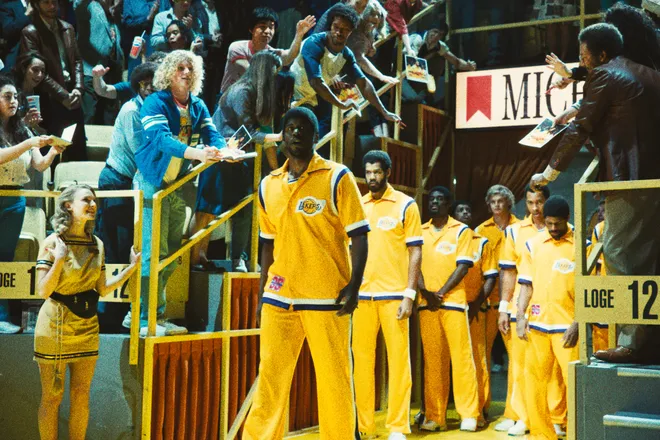
Episode 1 opens with the Lakers beating bitter rival Boston Celtics in Game 1 of the 1984 NBA finals. The exuberant victorious Lakers sprint through Boston Garden to board the team bus. But the cheers turn to fear as the bus is surrounded by angry Celtic fans who throw beverages, pound the windows and curse.
The ugly scene did happen. In the 2009 book "When the Game Was Ours," co-written with Jackie MacMullan, Johnson called the 100-person mob "frightening" as Celtics fans rocked the bus while throwing beer cans and rocks. In real life, however, the taunting crowd outside the Boston Garden wasn't angry about a Celtics loss. Instead, they were obnoxiously celebrating the Celtics' Game 7 win and NBA championship. Police had to clear the scene so the bus could move.
"Our nerves were shot to begin with because of the devastating loss and now everyone is freaking out because we were surrounded and we couldn’t go anywhere," Johnson remembered. "We had to sit there and take it."
The significant change was made for story reasons.
" 'Winning Time' is not a documentary. It's almost dramatic non-fiction," Pearlman tells USA TODAY. "But they really got the attack on the bus right, the intensity of it. The fear was legit."
Kobe Bryant's Lakers’ endured the same fate after losing Game 6 and the NBA championship to the Celtics in 2008, with their bus rocked outside outside TD Garden in Boston.
Was the superstar tension between Magic Johnson and Kareem Abdul-Jabbar real?
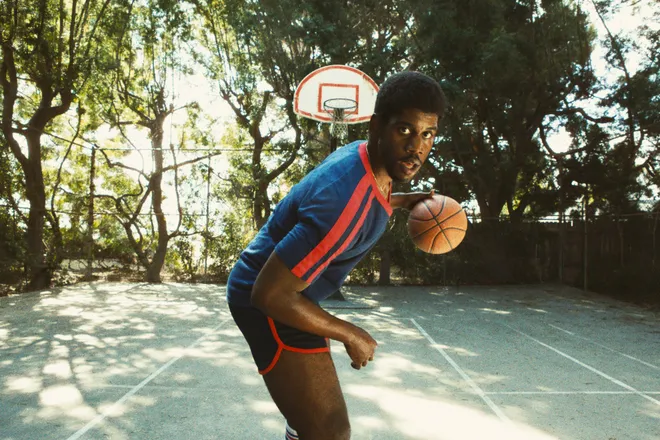
After a look at 1984, Episode 1 jumps back to the troubled Lakers' 1980-'81 season. Among the many problems facing the team that had just won the 1980 championship (depicted in "Winning Time" Season 1) was the growing locker room battle between finals MVP Magic Johnson and the veteran team captain Kareem Abdul-Jabbar (Solomon Hughes).
Lakers head coach Paul Westhead (Jason Segel) begins to intervene to bolster Abdul-Jabbar's leadership while clashing with Johnson in "Winning Time."
The player tension was "1,000% real," says Pearlman, even if the scenes depicting the moments are fictionalized.
"Magic had been struggling to take symbolic charge of the team ever since the world championship," Westhead wrote in his 2020 memoir, "The Speed Game." "Magic Johnson was going too far in his new role as team leader."
In his 1992 memoir "My Life," Johnson calls his sophomore NBA year "the worst year I ever had in basketball," describing "terrible tension on the team." The superstar also missed months of the season after tearing his knee cartilage, as depicted in "Winning Time." In the memoir, Johnson refers to this possible career-ending ordeal, his first major injury, as "my worst nightmare."
Did Kareem Abdul-Jabbar and Magic Johnson both have new babies during the 1980-'81 season?
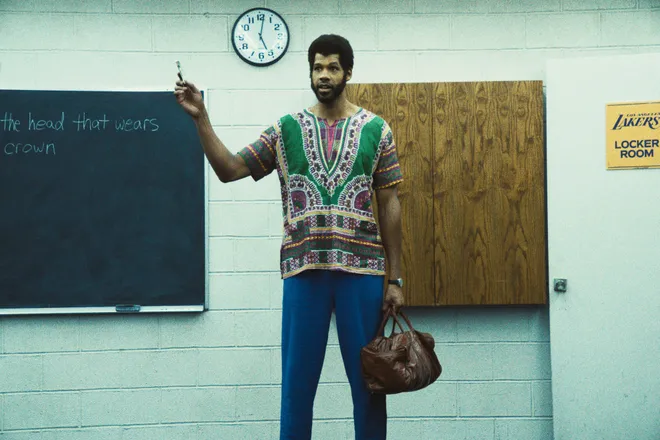
Abdul-Jabbar proudly welcomed his child Amir with partner Cheryl Postono. He called the birth "the best thing to happen to me in 1980" in his autobiography "Giant Steps," explaining the name means "an emissary with the right to rule."
The birth of Johnson's first child Andre with Melissa Mitchell several months later was less celebratory.
"I was 21-years-old, I wasn't ready to be the father," Johnson wrote in his memoir, saying he met Mitchell when he and future wife Cookie Johnson had temporarily broken up. "Melissa and her people saw me as the villain and there was bad blood in the air."
Did Pat Riley give himself a makeover when he became Lakers head coach?
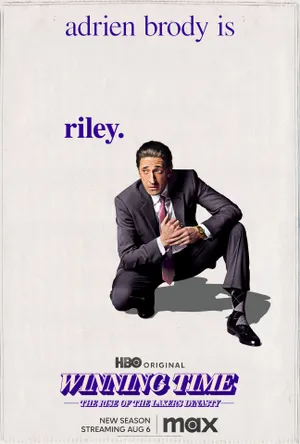
For all of Season 1, viewers have watched as Lakers assistant coach Pat Riley (Adrien Brody) showed off an unruly, and frankly uninspired, head of hair. In Episode 1 of Season 2, during the brief foray into 1984, viewers get a glimpse of Riley as head coach, where we see his famed slicked-back hair look.
This transformation to the sharply attired Riley, who would grace the cover of GQ, will be explored in future "Winning Time" episodes. But it takes place as he's named head coach during the 1981-82 season.
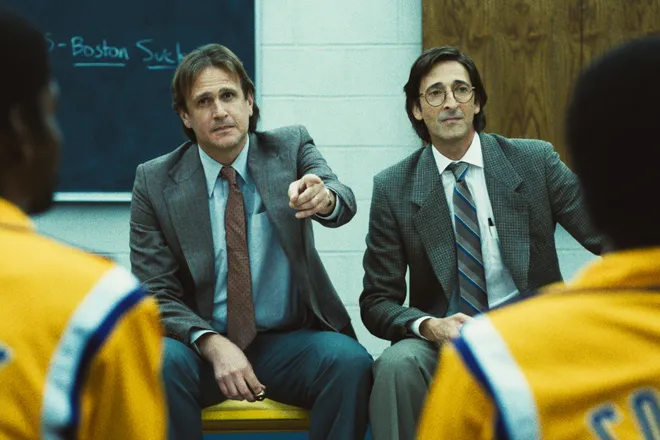
"Everything changed when Riley became Lakers head coach," says Pearlman. "This was a time period where Magic was a spokesperson for Buick and 7UP and Kareem was getting endorsements. Right around that time, Riley was the first coach to really recognize his marketing potential."
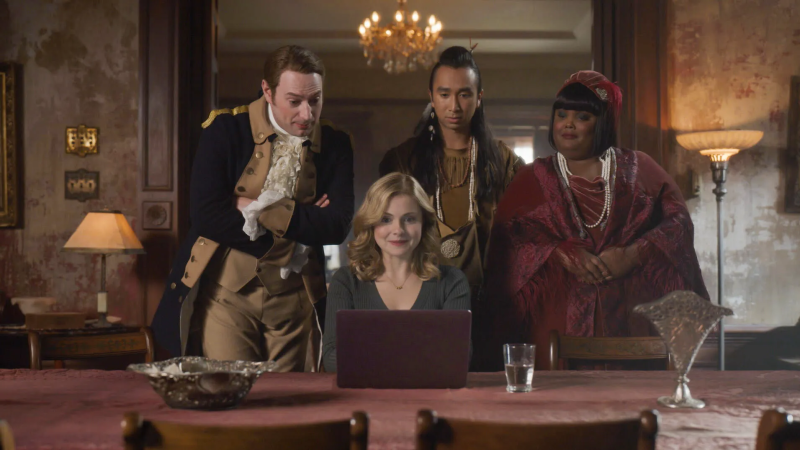
Disclaimer: The copyright of this article belongs to the original author. Reposting this article is solely for the purpose of information dissemination and does not constitute any investment advice. If there is any infringement, please contact us immediately. We will make corrections or deletions as necessary. Thank you.







